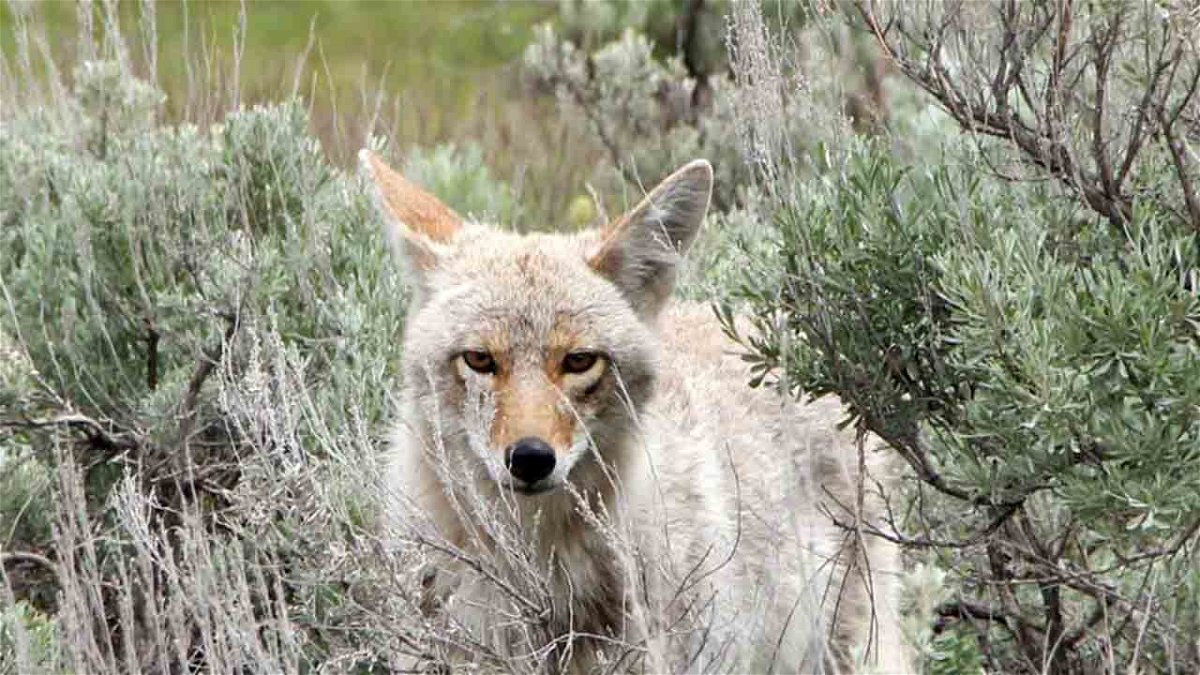Recreationists, homeowners reminded to take precautions with their pets as coyote denning season arrives

IDAHO FALLS, Idaho (KIFI) - Amid increasing reports of coyote activity around Boise and as well as other Idaho cities, Fish and Game reminds recreationists and homeowners to take additional precautions with their pets to help reduce the risk of potential conflicts during the coyote denning season.
Fish and Game officials in the Southwest Region were recently made aware of a possible non-fatal coyote attack on an off-leash dog in Southeast Boise. The conflict occurred in an open space popular with dog walkers near the intersection of East Amity Road and South Surprise Way.
While Fish and Game has been unable to confirm whether a coyote was responsible for the attack, the recent conflict occurred near the peak of the coyote breeding season when coyotes become more territorial toward other canines, including domestic dogs. Fish and Game’s Magic Valley Region office has also received reports of dog-aggressive coyotes in Twin Falls and Hagerman.
“There is a biological reason behind coyotes behaving more aggressively during this time of year, and that applies not just to this neighborhood and not just to Boise, but to any areas where coyotes might be denning, statewide,” said Ryan Walrath, Regional Wildlife Manager for Fish and Game’s Southwest Region.
Fish and Game most commonly gets reports of coyote conflicts on the urban/suburban-wildland interface, but coyotes are highly adaptable animals and denning can occur even in city parks or along urban river corridors, which have good edge habitat and abundant prey species.
Encounters between coyotes and domestic dogs can happen at any time of year, and coyotes can always pose a risk to dogs in situations where they view them as either a prey source or as competition. The risk increases during the mating season (late February to early March) when coyotes – particularly males – become more aggressive. That’s also the case during denning season in spring and early summer, when coyotes are inclined to protect their young around their den sites.
Coyotes are generally active at night, though they can be spotted during the day. They are naturally fearful of humans but may become more comfortable if given easy access to human food, garbage, pet food and small domestic pets.
Here are some steps homeowners and recreationists can take to keep their pets safe and prevent coyotes from becoming habituated to humans:
Homeowners
- Remove or secure coyote attractants — such as pet food, trash or dog feces — as well as attractants for native species that coyotes are known to prey on. Coyotes eat small animals such as rodents, squirrels, gophers, opossums, raccoons, skunks and foxes.
- Enclose backyard poultry, livestock, or other small animals that live outside with secure fencing and a roof.
- Don’t leave your dog outside unsupervised, particularly in areas where coyote conflicts have been known to occur.
- If possible, ensure your property boundaries are secure by keeping fences in good repair and letting your dogs out for bathroom breaks only in fenced areas, particularly at night. The American Kennel Club recommends solid fences of at least 6-feet tall, and buried in the ground at least 18 inches, and says that “coyote rollers” can provide additional deterrence.
- If your property is not fenced, turn on outside lights and make noise before letting your dog outside, and consider taking your dog out on a leash for nighttime bathroom breaks.
- Clear away brushy areas around your property that coyotes may see as safe denning or hiding spots.
Recreationists
- Keep dogs on leash when using trails.
- If you know that an area has recently experienced coyote conflicts, consider using a different area that is open to recreation.
- Consider bringing a loud noisemaker with you – a whistle, bell or horn – which can be helpful in scaring off a coyote.
- Another option is carrying bear spray, and knowing how to use it. It’s not just for bears and can also be used as a highly effective tool against other mammals if an unsafe wildlife encounter occurs.
- When hiking, make noise to announce your presence. Coyotes are more leery around humans.
- Be present in the moment, and aware of your surroundings and your dog.
